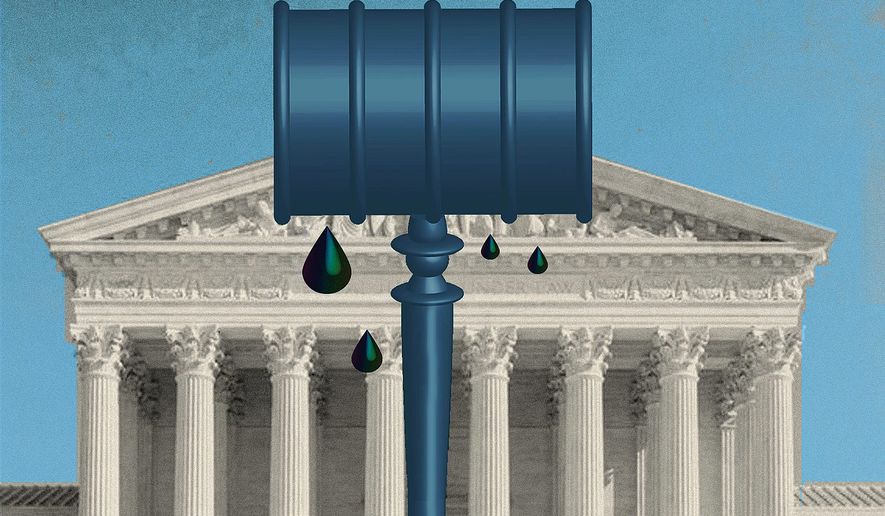OPINION:
On Friday, the Supreme Court is to consider whether it should take up for full review a case that will determine whether so-called climate change lawsuits will proliferate in every county courthouse in the country or whether these cases that raise truly global concerns (and almost certainly require a national approach to the allocation of liability) will be heard in federal courts.
Regardless of which answer you prefer, it is hard to see why answering that question does not fit squarely within the Supreme Court’s mandate.
The case to be heard is Suncor Energy (U.S.A.) Inc. v. Board of County Commissioners of Boulder County. Several local governments in Colorado sued energy companies that produce or sell fossil fuels, seeking damages for the effects of global climate change under novel and unmerited expansions of lofty-sounding common law torts like public and private nuisance, trespass, and consumer deception.
The Suncor case is similar to dozens of cases filed throughout the country. The procedural and jurisdictional issues raised in the petition being considered on Friday are similar to several other cases with certiorari petitions pending before the Supreme Court.
In each of these cases, plaintiffs filed their claims in state court and carefully drafted their complaints to raise only state law issues, trying to shield the cases from the right of removal that defendants have when a case is filed in state court but involves federal claims. If removed, the cases will be tried in federal court, probably with judges that the plaintiffs think are less likely to accept their theories of liability and strained concepts of proof of proximate causation.
The merits of these cases are questionable, but that is a battle for down the road. For now, the Supreme Court is deciding only whether the defendants may have these cases concerning global climate change — which seek to impose global liability for global companies with a global effect on global energy prices and supply — heard in federal court.
The 10th U.S. Circuit Court of Appeals said the case could not be removed from state courts. Whether the 10th Circuit was correct is the only issue the Supreme Court will decide at this stage of the case.
Ultimately, the question is whether Suncor and similar cases can be heard in dozens of different states with the risk of inconsistent or conflicting verdicts that risk chaos in global energy markets, threaten energy security, and thereby compromise national security without any branch of the federal government having a role in the decision-making.
It is a question of whether a patchwork of lawsuits can be used to stretch the defendants’ resources so thin that they are forced to settle. All along the way, the costs of litigation will raise the price of energy, ultimately affecting consumers already hit hard by inflation.
If the Supreme Court believes that these cases can scatter to the local courthouses across the country, the court should accept the case for full review and say so.
Only then will Congress get a clear signal and be motivated to take action to prevent that chaos — by passing legislation to preempt these local lawsuits and declare that these cases belong in federal courts even more expressly than it has already done through the Clean Air Act and other vehicles.
Without such a signal from the Supreme Court, though, we know Congress is slow to act when it thinks the right result will shake out in the courts.
On the other hand, if the Supreme Court believes that removal is proper and these cases should be heard in federal courts, then that, too, injects critically valuable information and clarity into the judicial system.
Finally, if the Supreme Court does not grant certiorari, then it will be leaving energy companies at sea to defend themselves in innumerable ports.
Nothing stands in the way of the Supreme Court granting the petition to answer this pivotal question. Numerous cases have already percolated in the courts below. The questions raised in Suncor’s petition are pure matters of law, requiring no factual development.
The case being heard on Friday deals with issues that are so substantial as to demand an answer at some point from the Supreme Court.
They may as well take care of the problem now.
• Donald J. Kochan is professor of law and deputy executive director of the Law & Economics Center at George Mason University’s Antonin Scalia Law School.




Please read our comment policy before commenting.